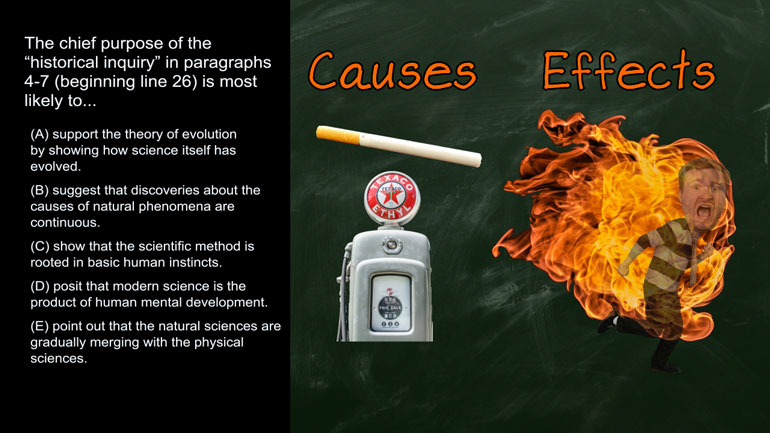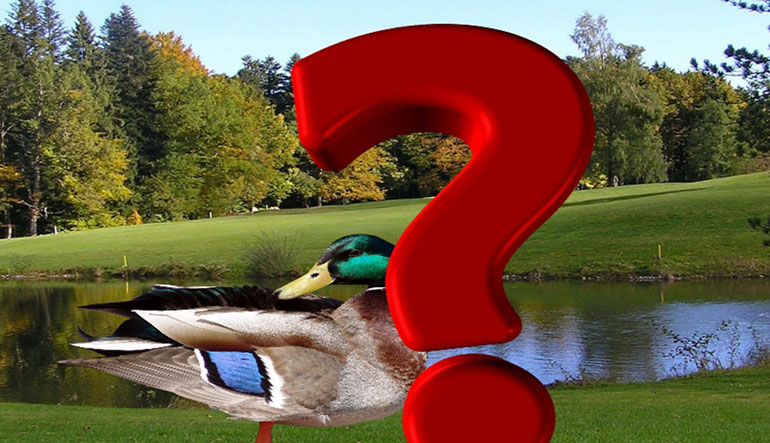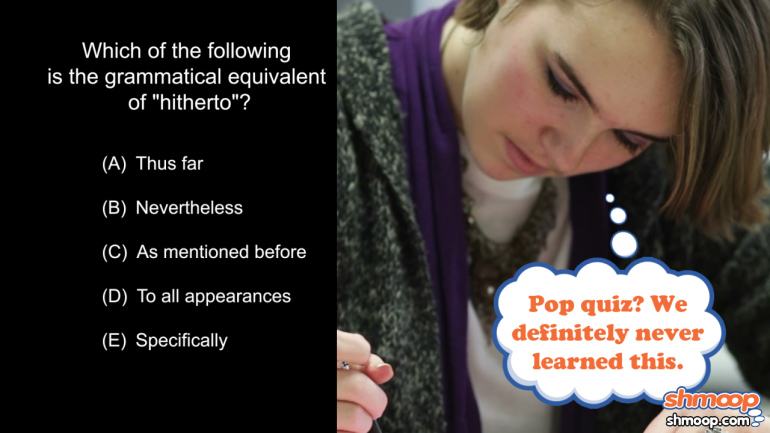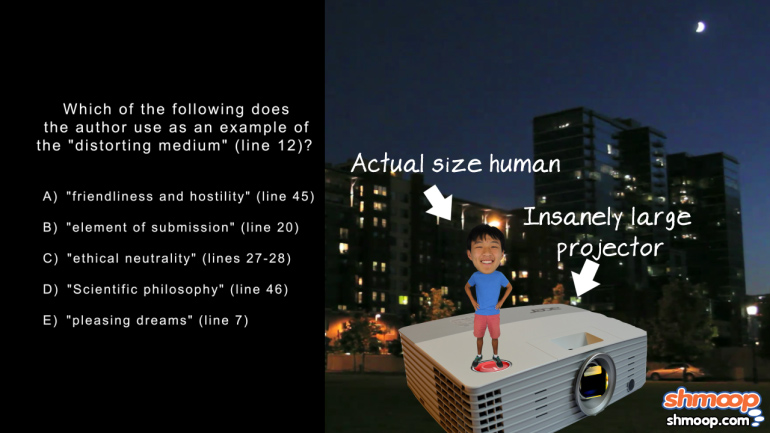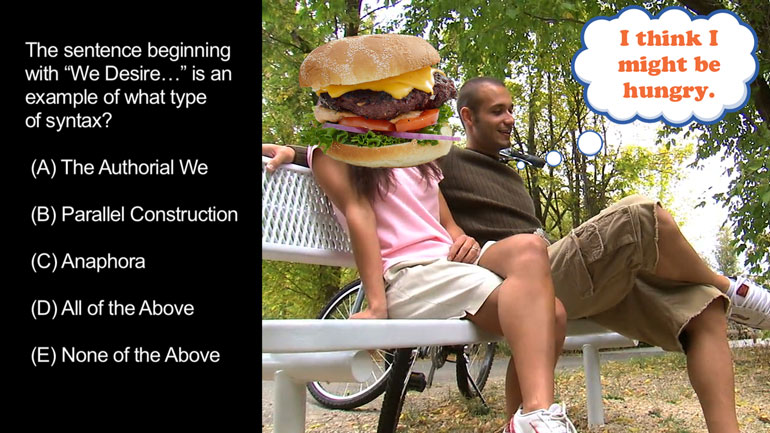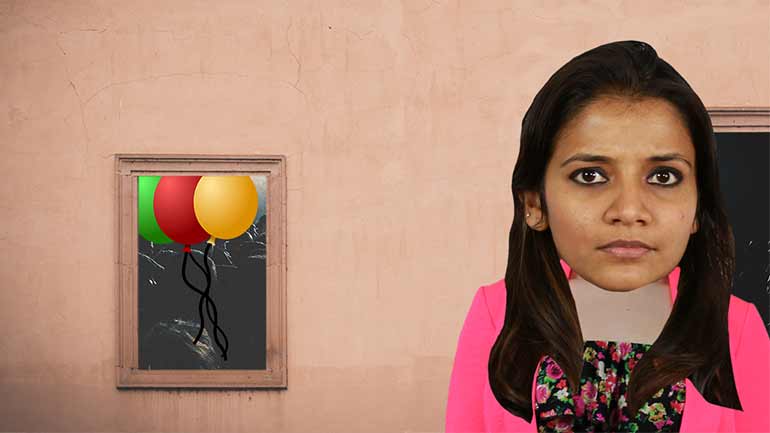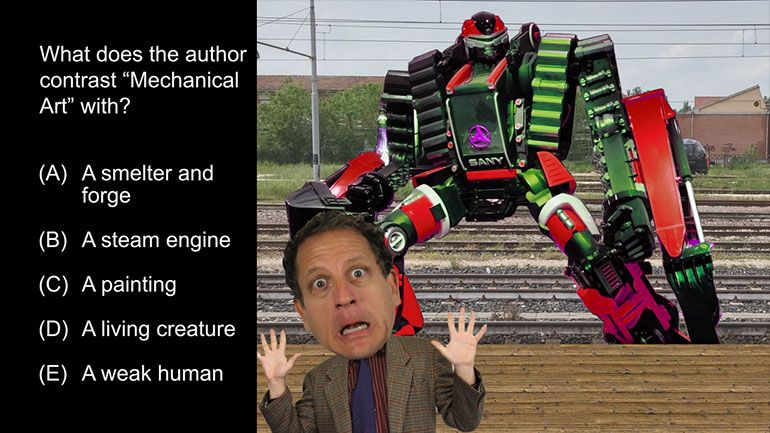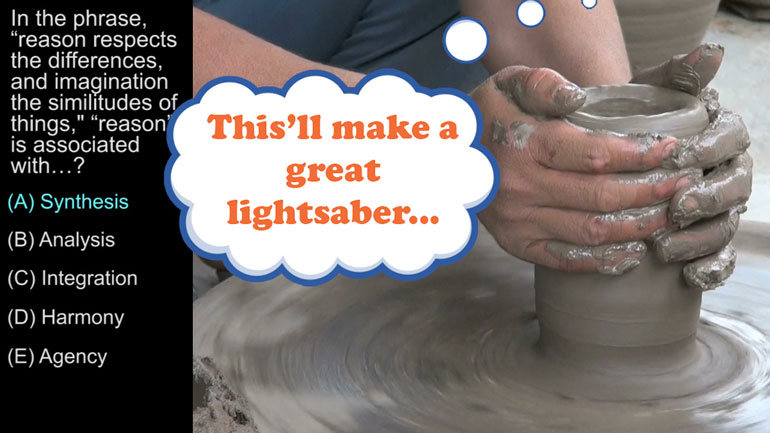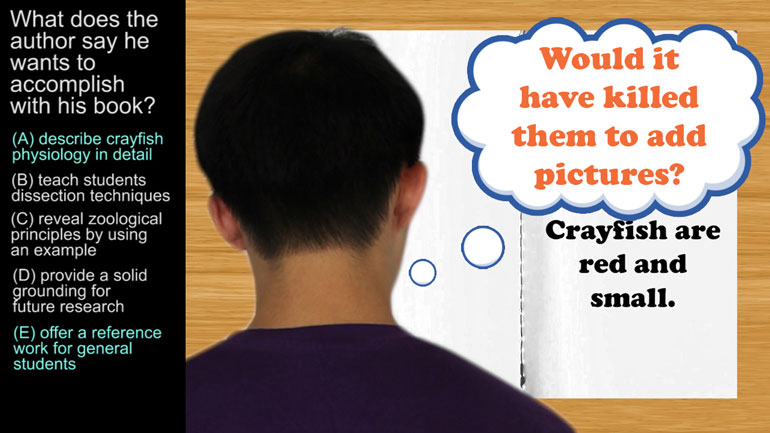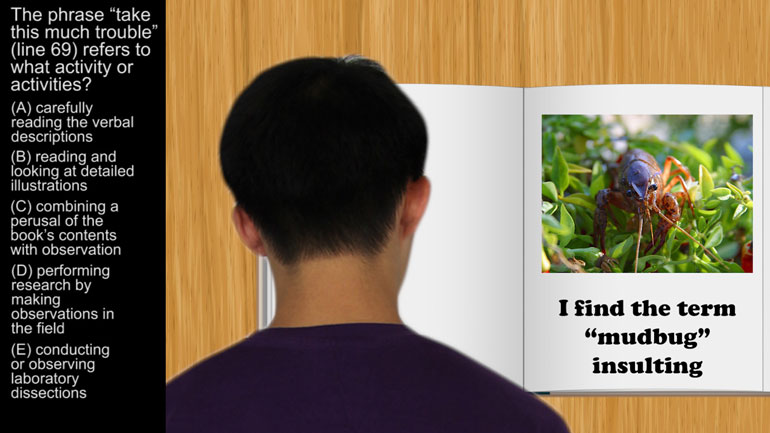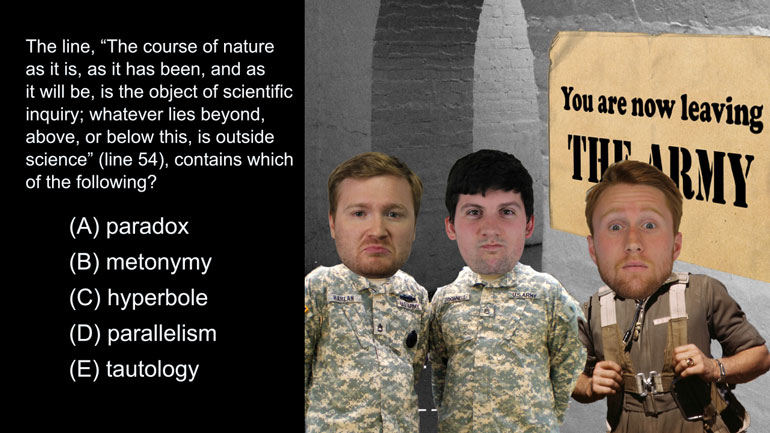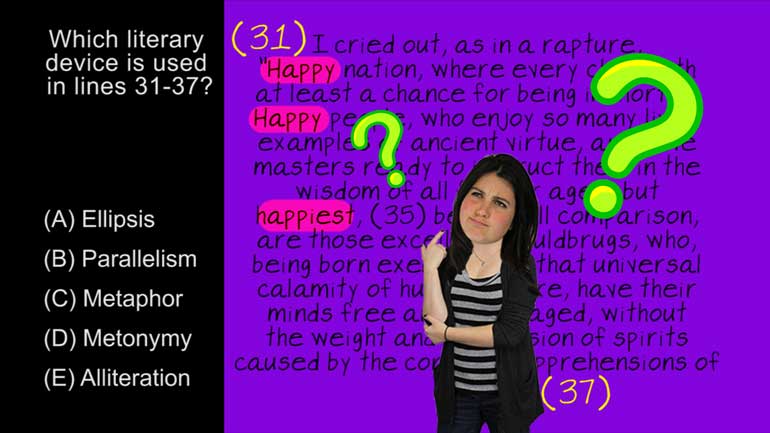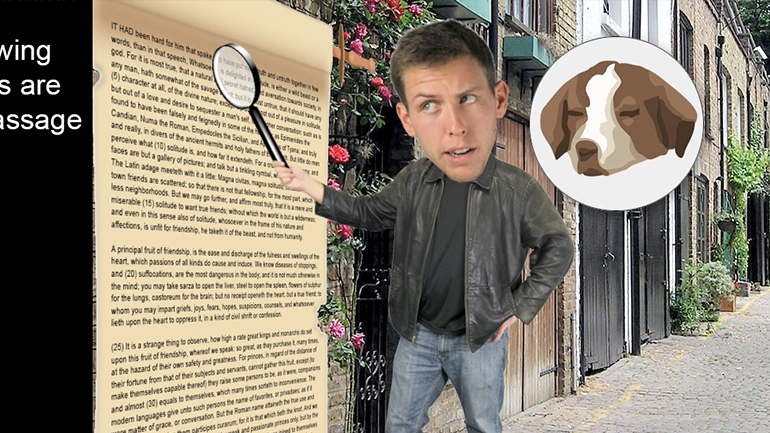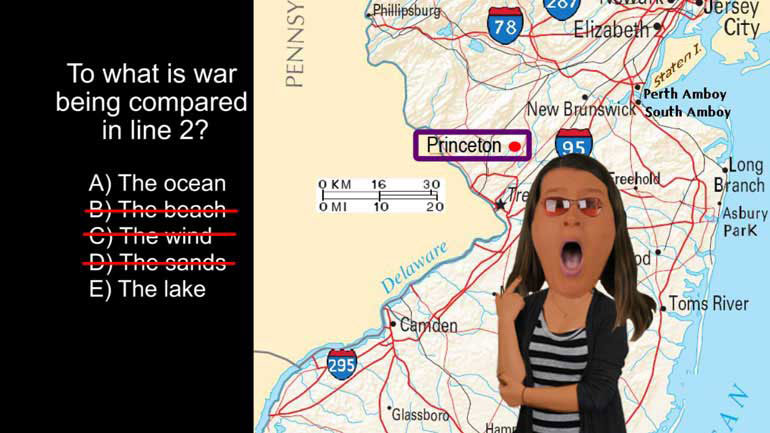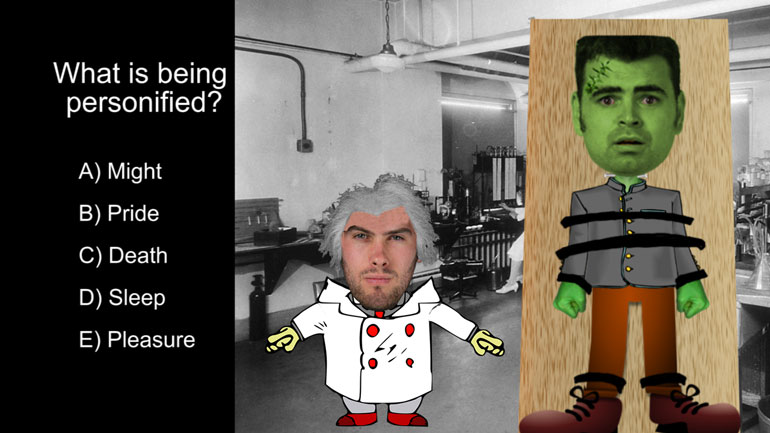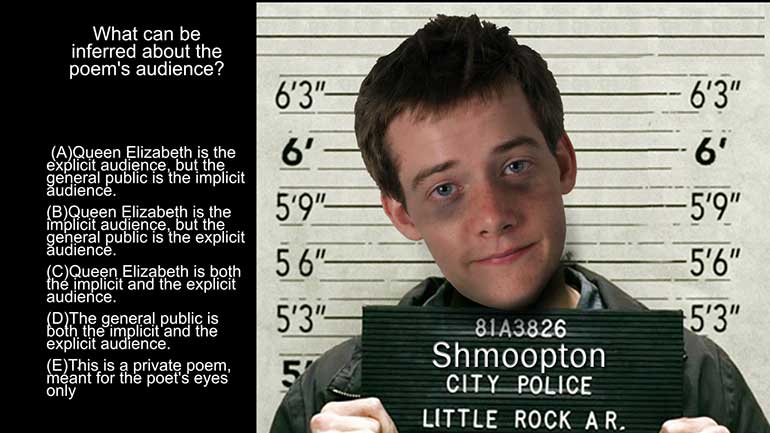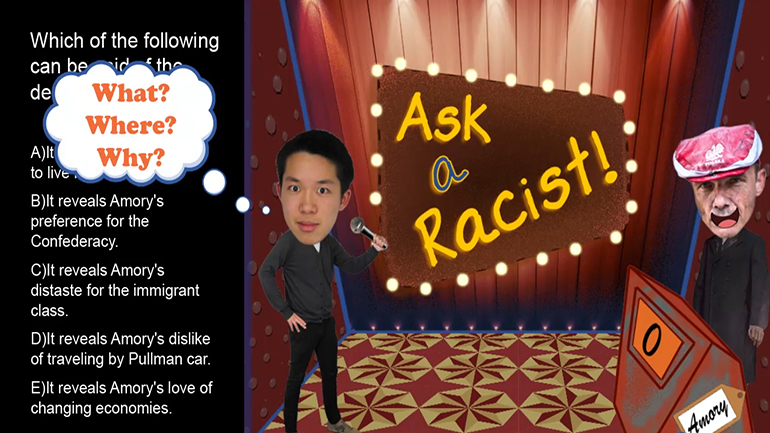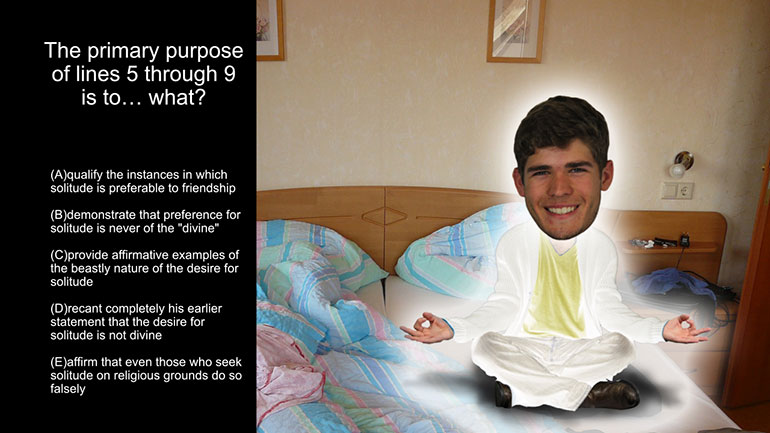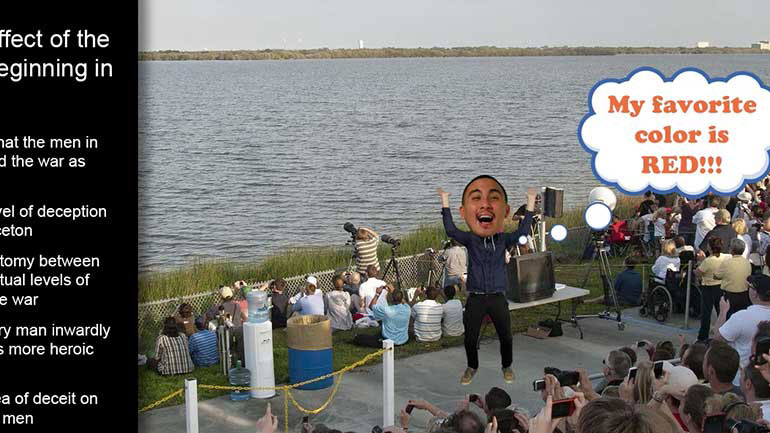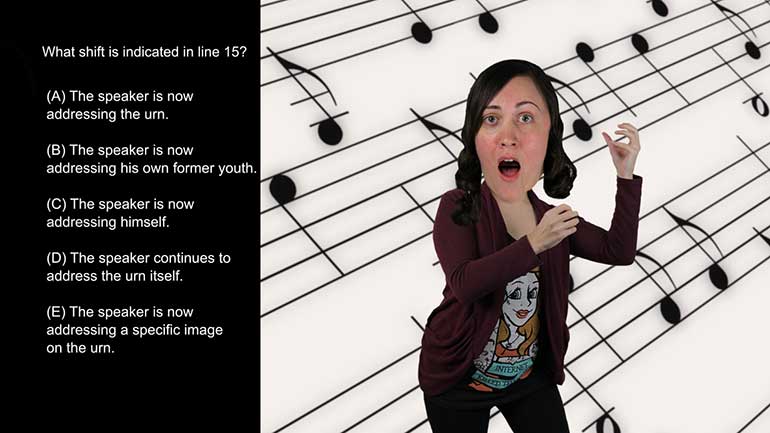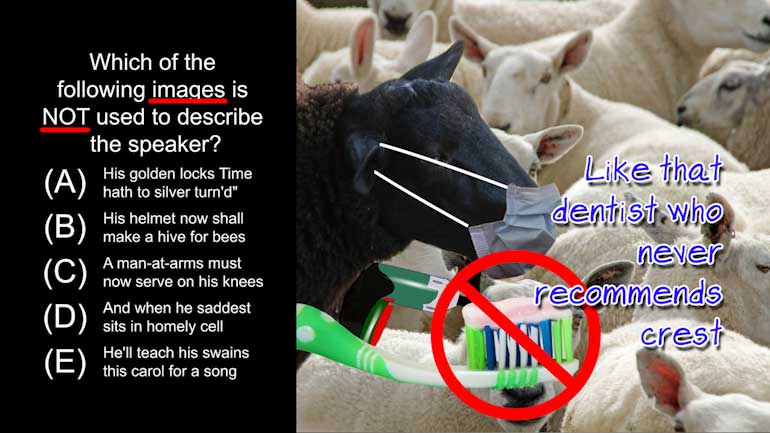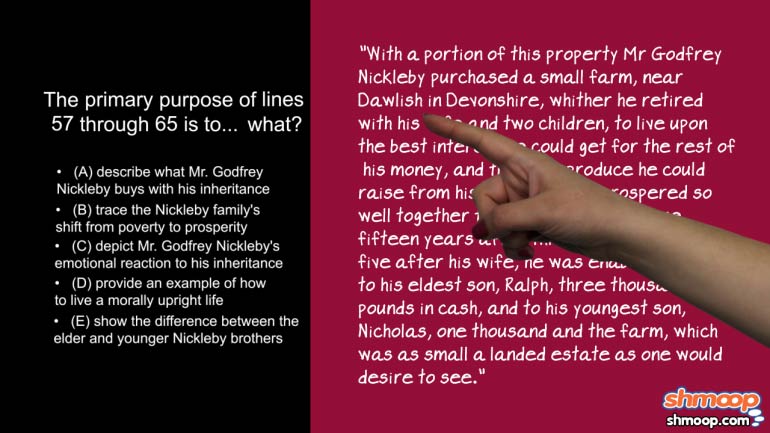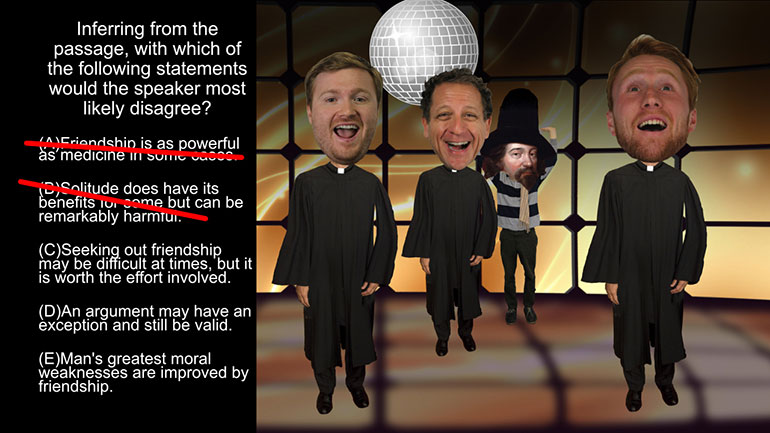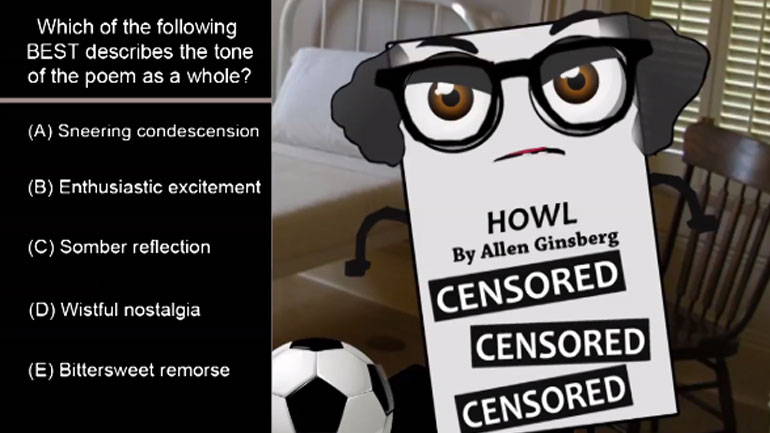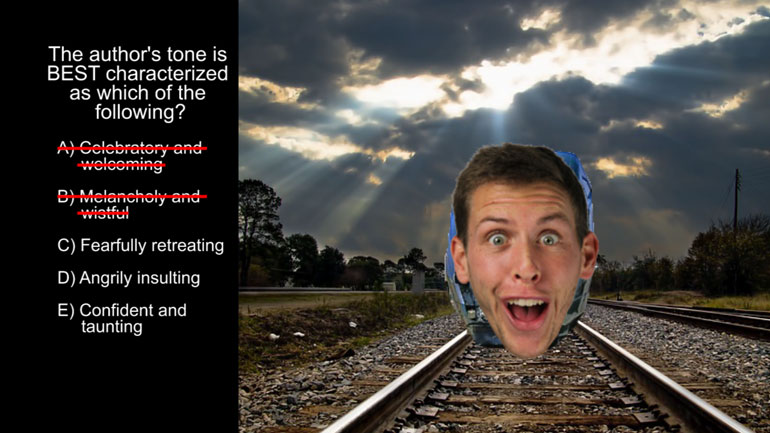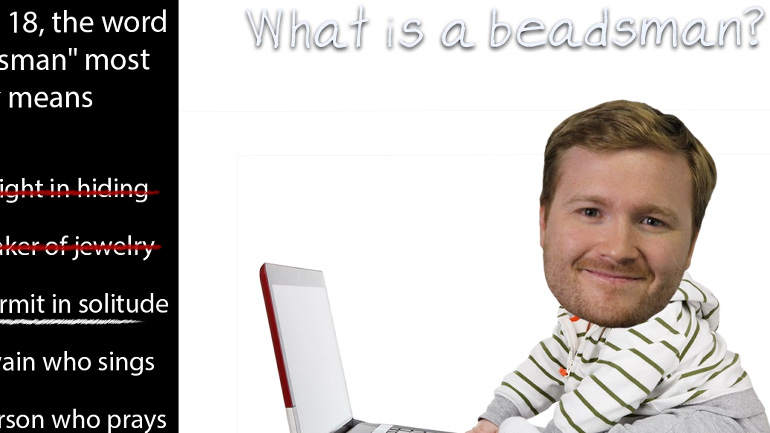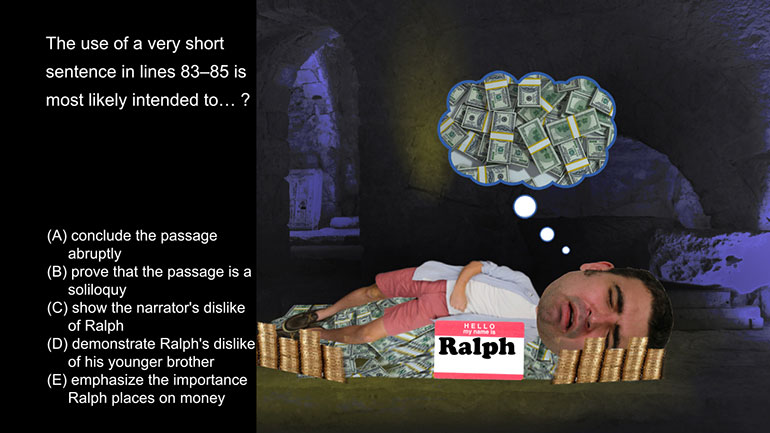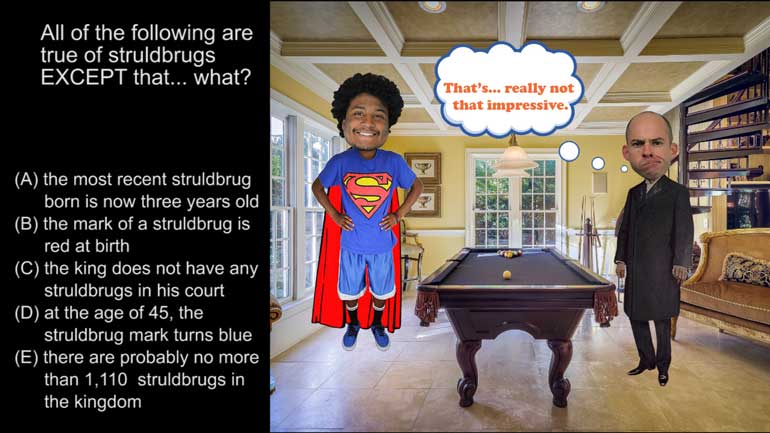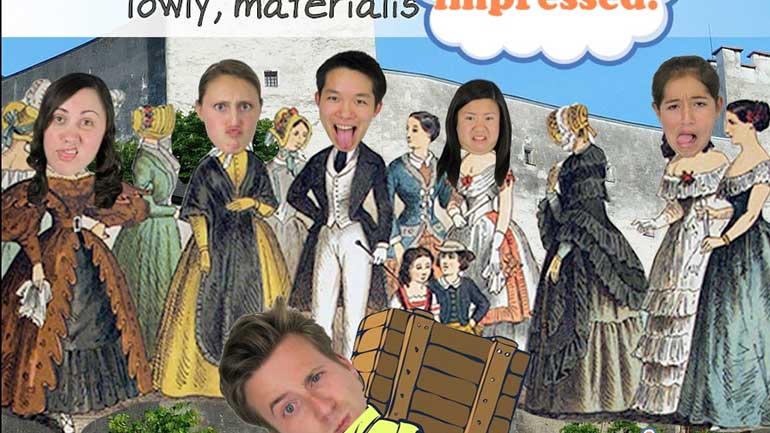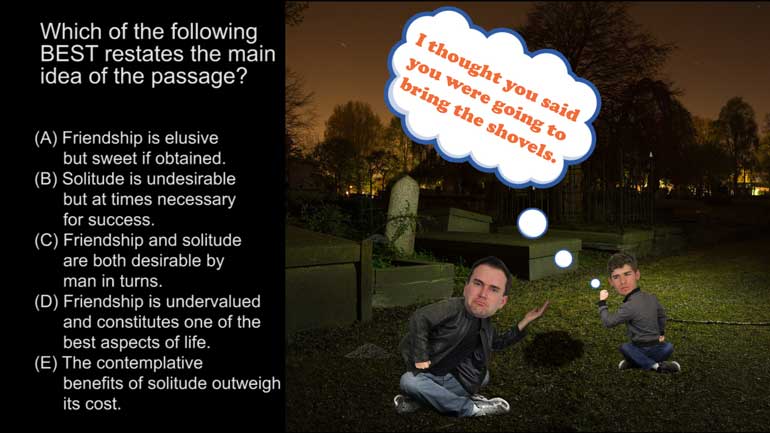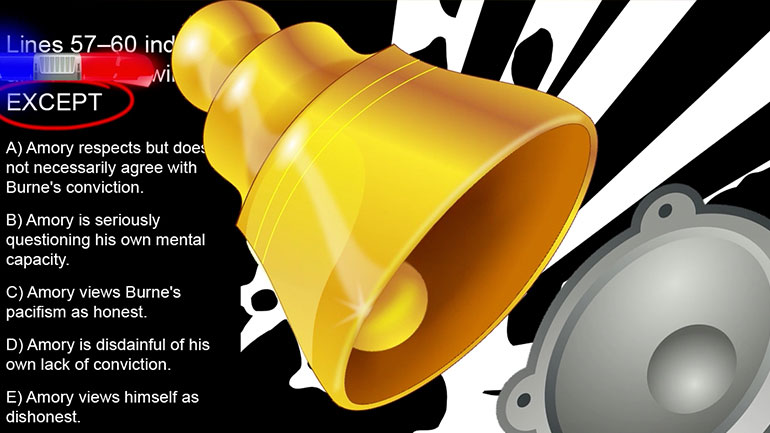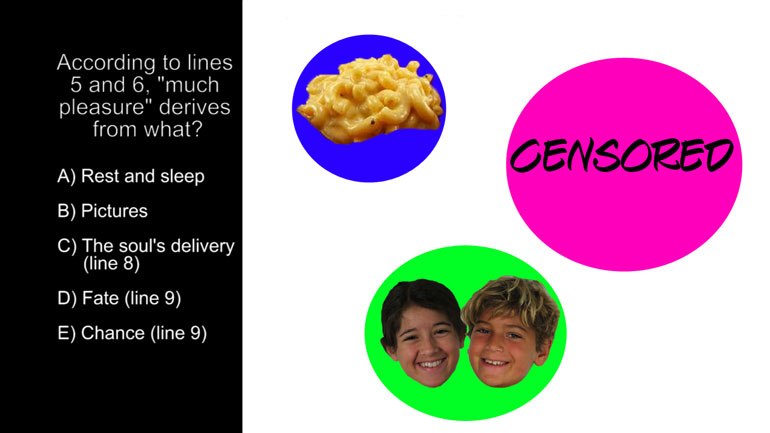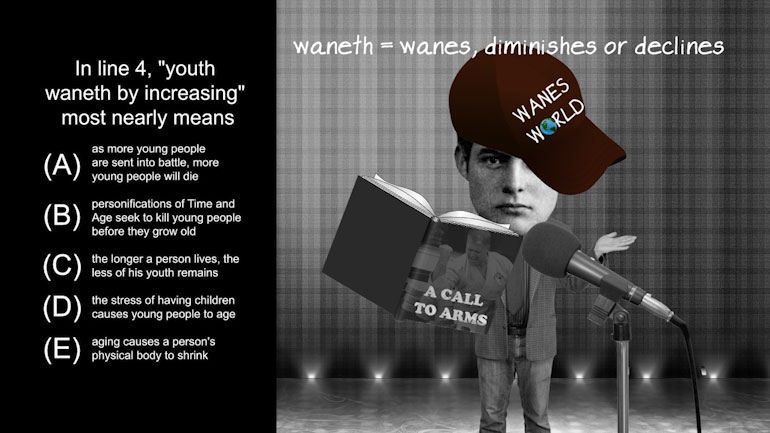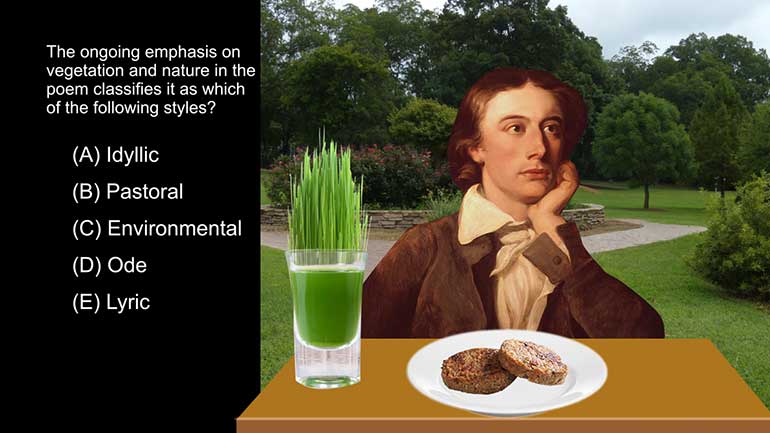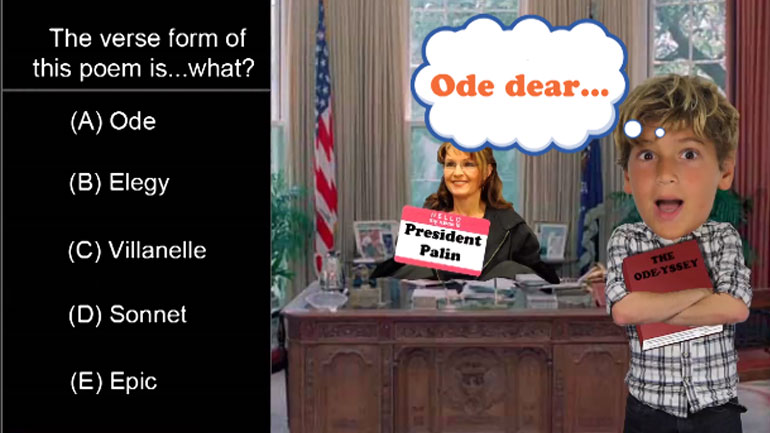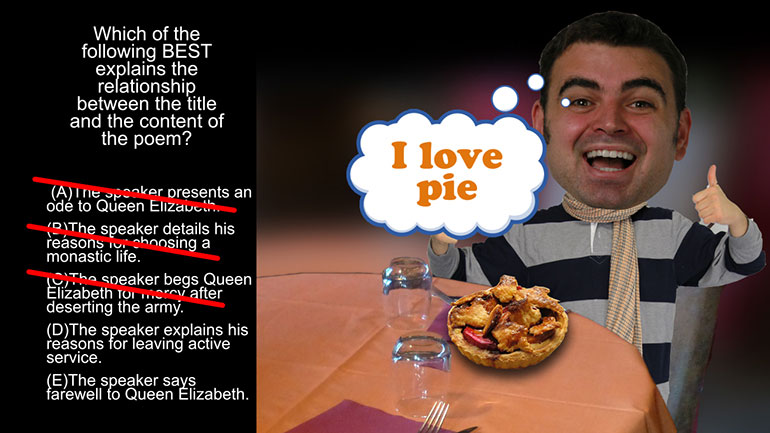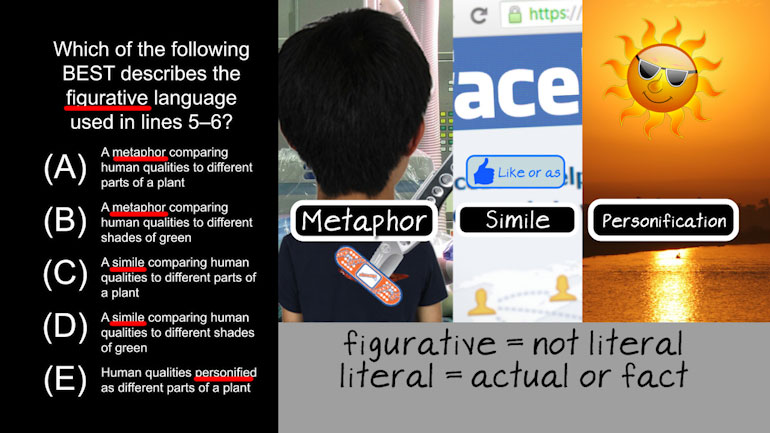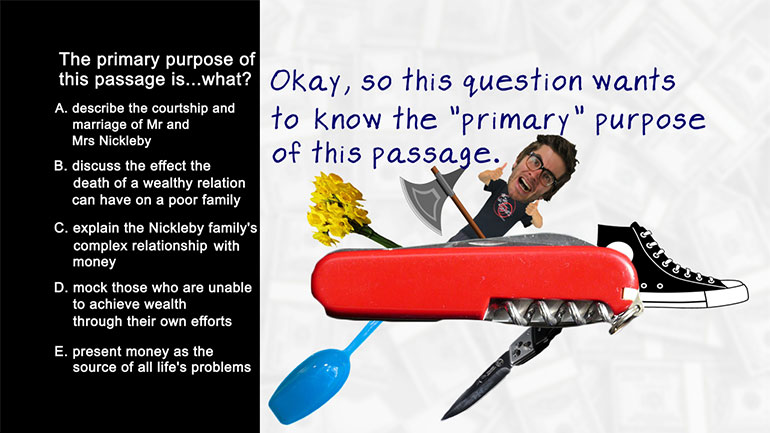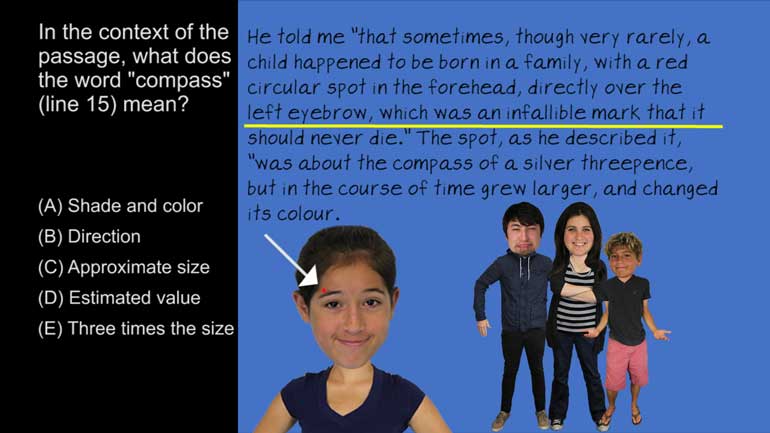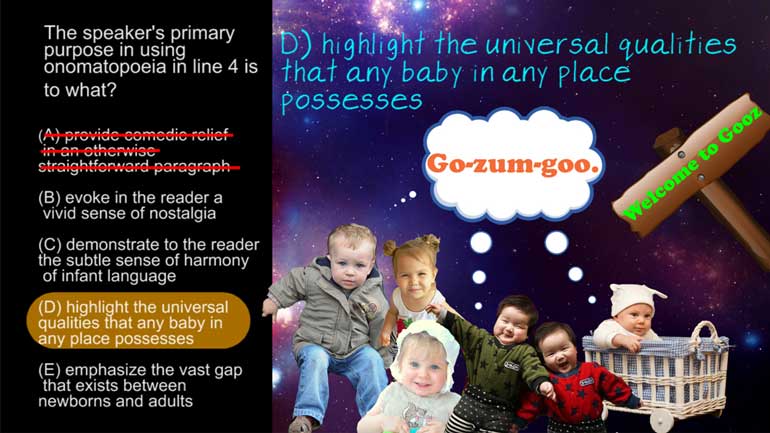ShmoopTube
Where Monty Python meets your 10th grade teacher.
Search Thousands of Shmoop Videos
Test Prep Videos 223 videos
AP English Literature and Composition 1.2 Passage Drill 4. As which of the following is the object being personified?
AP English Literature and Composition 1.4 Passage Drill 3. How is Burne's view of pacifism best characterized in lines 57 through 67?
AP English Literature and Composition 1.6 Passage Drill 5. Death is primarily characterized as what?
AP English Language and Composition 4.6 Passage Drill 230 Views
Share It!
Description:
Take a look at this shmoopy question and see if you can figure out which device the speaker employs the most.
Transcript
- 00:00
[ musical flourish ]
- 00:03
And here's your Shmoop du jour, brought to you by literary devices.
- 00:06
Like our toaster that can't get enough Joyce.
- 00:11
All right, we're reading. Shakespeare. Handel. Odyssey. Jane Austen.
- 00:14
[ mumbles ]
Full Transcript
- 00:22
[ mumbling continues ]
- 00:36
Okay, yep, we're done.
- 00:37
Which device does the speaker employ most?
- 00:40
And here are the potential answers.
- 00:42
[ goat sound ] [ mumbles ]
- 00:48
All right, well, we need a strong grasp on the whole passage for this one.
- 00:51
If we don't have one, it might be a good idea to skim through the passage again
- 00:54
with all these options in mind. And do it quickly, because these tests time you.
- 00:58
Option D thinks the speaker is being ironic the whole time.
- 01:01
If that were so, the speaker would be saying the opposite of what he means to make the point.
- 01:05
And ironic speech
- 01:07
is sort of a wink, wink, nudge, nudge situation.
- 01:12
As far as we can tell, the speaker is saying exactly what he means.
- 01:15
We declare this speech irony-free. Yep.
- 01:17
Answer B says the speaker uses a lot of alliteration,
- 01:21
or words that begin with the same consonant sound.
- 01:25
If this were true, the speaker's speech might sound like this:
- 01:28
The quota of questions makes me quiver, quack, and quake.
- 01:32
Queally.
- 01:33
Luckily, the speech sounds nothing like that.
- 01:35
We're gonna have to say no to choice A.
- 01:37
The speaker doesn't seem all that into understatement.
- 01:40
Where does he purposely downplay anything?
- 01:42
Well, nowhere that we can see. If anything, he's an exaggeration fiend.
- 01:46
[ shout ]
- 01:48
E claims the speaker is sweet on similes,
- 01:50
but the speaker doesn't use many besides
- 01:53
the Facebook status-worthy simile about the violin.
- 01:57
If you wanna make that quote your Facebook status, well, we won't judge.
- 02:00
Option C gets it right.
- 02:02
All sorts of tricks are pulled out of a hat, but
- 02:04
metaphor is the speaker's favorite.
- 02:06
For example,
- 02:07
the whole immortality/sunrise/infancy
- 02:10
bit is a metaphor with a capital "M."
- 02:12
And as we all know, capitalized metaphors are way
- 02:15
better than the ones in lowercase.
- 02:21
[ shout ]
Related Videos
AP English Language and Composition: Passage Drill Drill 1, Problem 2. What is the speaker's primary purpose in using onomatopoeia in line four?
AP English Literature and Composition 1.1 Passage Drill 7. The primary purpose of this passage is what?
Wishing upon a star may help you pass your AP English Language and Composition test, but answering this question would be a safer bet.
Feel like shifting gears and answering a question about shifting tones? We've got you covered. Take a look at this question and see if you can foll...
Do you know a prepositional phrase when you see one? Take a look at this AP English Language and Composition question and find out.




















